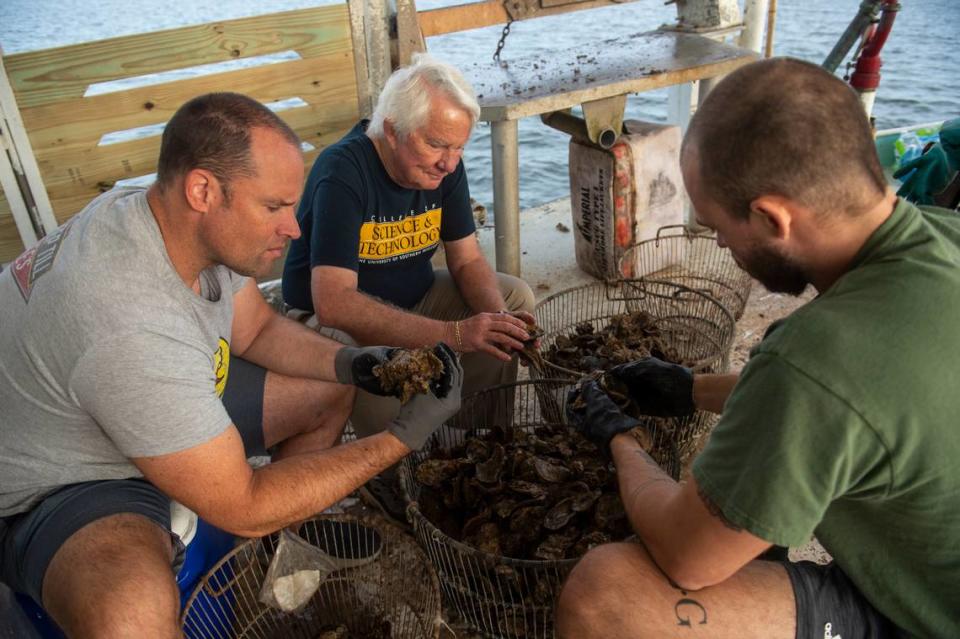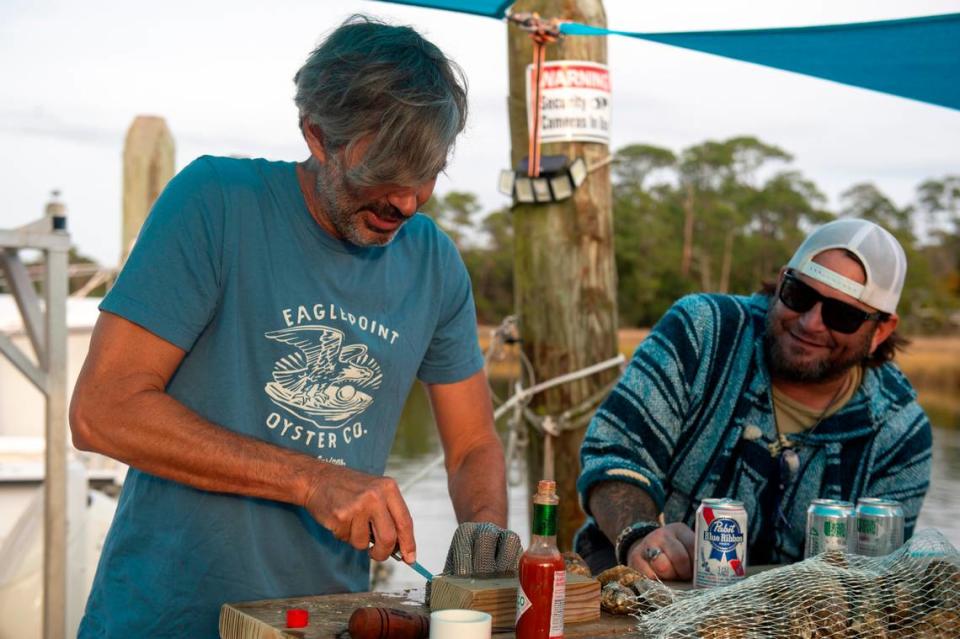Army Corps downplays spillway openings that killed dolphins & oysters, MS Coast group says
The U.S. Army Corps of Engineers is downplaying the devastating impacts of its flood prevention protocols on the Mississippi Sound, representatives of the Mississippi Sound Coalition say.
Oyster reefs have yet to recover from the prolonged opening in 2019 of the Bonnet Carré Spillway that released Mississippi River floodwaters into Lake Pontchartrain and the Sound. The Army Corps follows a protocol established in 1928 to control Mississippi River flooding of New Orleans, but excess river water disturbs the balance of salt and freshwater that oysters and other aquatic species need to thrive.
“We don’t have an oyster population left in the Mississippi Sound and it’s because of the Bonnet Carré Spillway,” Robert Wiygul, an environmental attorney who represents the coalition, said during a news conference Monday.
Under court order, the Army Corps has completed a crucial report for the National Marine Fisheries Service that says river water discharges can kill oysters, but prolonged Bonnet Carré discharges are “unlikely to have long term impacts to oyster reefs” that also serve as nurseries and habitat for other aquatic species.
Flooding kills oysters, dolphins
Public oyster reefs in Mississippi have been closed since 2018 because oysters are still scarce. In 2019, oysters died on reefs all the way to the Alabama state line, although the Corps’ report says harmful impacts are mostly limited to the Western Mississippi Sound.
In addition to oyster mortality, the 2019 opening killed 10% of the dolphin population, coalition manager Gerald Blessey said during the news conference, with recovery expected to take 30 years.
The coalition held the news conference after updating the Harrison County Board of Supervisors on its plans to “save the Sound,” which includes pushing the Army Corps to consider flood-control impacts. Corps studies have historically focused on Louisiana but, as coalition members pointed out, the river water doesn’t stop at the state line.
Wiygul told supervisors: “What we all want is a cooperative, data-driven process with the Corps of Engineers. That’s not what we’re getting so far. We have to push back.”

MS group aims to save the Sound
Armed with $1.475 million in funding from the state Legislature, the coalition is funding environmental and economic studies on how floodwater management impacts the Mississippi Sound.
Also, at the coalition’s urging, Sen. Roger Wicker helped pass legislation in late 2022 that directs the Corps to study ways to reduce flooding on the lower Mississippi River and reliance on the Bonnet Carré for flood relief.
The Bonnet Carré has been opened 15 times since its completion in 1931. But six of those openings have occurred over the last 12 years, as flooding has become more frequent, with four of the openings between 2018-2020. Federal fisheries disasters were declared after the 2011 and 2019 openings.
Coast localities, along with representatives of the tourism and fishing industries, established the Mississippi Sound Coalition and filed a lawsuit against the Corps in December 2019. The lawsuit followed the longest Bonnet Carré openings in history — 123 days — that covered the height of tourist season in 2019.

The coalition has sent National Marine Fisheries a response to the report the Army Corps completed under court order. It says the Corps’ conclusions about temporary harm to the Mississippi Sound during Bonnet Carré openings is “contrary to the available data and scientific literature. Many other assertions lack any citation to data or literature and are essentially unsupported opinion.”
U.S. District Judge Louis Guirola ordered the Army Corps to consult with the Marine Fisheries Service about the Bonnet Carré and said he will monitor compliance.
The Mississippi Sound Coalition’s broader goal is to save the Mississippi Sound from environmental degradation through improved water quality and other measures.
As coalition members and Supervisor Marlin Ladner pointed out, the Sound, separated by barrier islands from the Gulf of Mexico, is integral to the Coast’s culture, economy and way of life.


